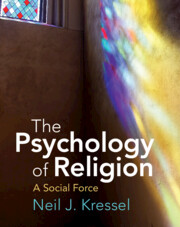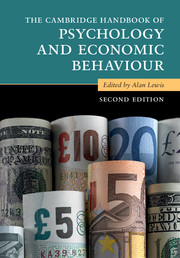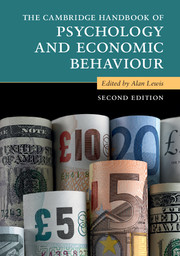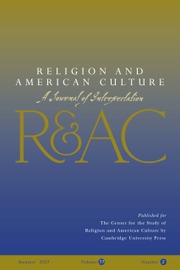The Psychology of Religion
Many of the greatest minds in psychology have tried to unravel the mysteries, power, appeal, and consequences of religion. The task of understanding human behaviour will never be complete without the use of science and logic to examine the psychology of religion and spirituality. This undergraduate textbook provides an engaging and accessible tour of the field, drawing on historical, theoretical, and cutting-edge sources. It explores the origins and meaning of various forms of religious belief around the globe, with enhanced coverage of non-Christian religions, non-believers, and diverse populations. By focusing on the personal, medical, moral, social, and political consequences of religion, it explores how these findings can be applied in real-world scenarios. Students are supported by clear learning objectives, defined key concepts, varied end-of-chapter questions, further reading suggestions, and visual content, making this an invaluable resource for undergraduates in the psychology of religion and spirituality.
- A comprehensive account that combines historical and theoretical developments with current research and real-world applications
- Includes engaging stories drawn from experience, history, and current events to provide a jargon-free, lively and accessible introduction to the field
- Tackles overlooked topics such as religious extremism and the sociopolitical implications of religious belief
Reviews & endorsements
‘The Psychology of Religion: A Social Force is destined to become a classic. It is unsurpassed in range and scope. Neil Kressel perceives religion as a social force, which now must include this marvelous book packed with wisdom on every topic discussed. This textbook is a true social force itself.’ Ralph W. Hood, Jr, University of Tennessee
‘Unlike many psychology of religion textbooks, this one explores boldly the realm of sociology, incorporating classical sociological theories while emphasizing practical social applications. Its methodology section offers valuable insights, highlighting the importance of theory and inquiry in guiding methodology, rather than the other way around.’ Zhuo Job Chen, University of North Carolina at Charlotte
‘Neil Kressel offers a comprehensive and engaging approach to the psychology of religion, weaving together thought-provoking case studies, historical insights, and cutting-edge research. By balancing classic and contemporary sources, this book provides an in-depth understanding of religious behaviors and decisions within sociological, psychological, and biological contexts.’ Crystal Park, University of Connecticut
‘I would strongly recommend Neil Kressel’s thorough review and explanation of the essential topics and concepts in the psychology of religion. Most importantly, his descriptions are unique in their user-friendly approach. His emphasis on creating an understandable text does not compromise the intellectual rigor of the information.’ Deborah Pauli, Southwestern Assemblies of God University
‘Kressel’s textbook is a great introduction to the psychology of religion, one that provides vital historical and multidisciplinary background. Given the ever-expanding field of psychology of religion, its breadth of coverage is impressive. Its approach is accessible to any student, no matter what their educational level or background. Students will surely leave this book with a solid footing in the area.’ Adam Fetterman, University of Houston
‘Neil Kressel’s textbook is a comprehensive and valuable resource for students, instructors, and scholars of the psychology of religion and spirituality. It introduces readers to the classic theories as well as current developments and incorporates insights from sociology, philosophy, and the biological sciences, while not shying away from critically discussing the political and social implications of the empirical findings of the field.’ Patrick Rosenkranz, Newcastle University
Product details
October 2024Hardback
9781108493390
589 pages
260 × 186 × 36 mm
1.27kg
Available
Table of Contents
- 1. The untold story of the psychology of religion
- 2. Classic approaches to religion and spirituality
- 3. Behaviorism, neuroscience, and the cognitive science of religion
- 4. The sociological context
- 5. Research methods and the empirical tradition
- 6. Religious attitudes and beliefs around the world
- 7. Religious development, religious experience, and prayer
- 8. Religion and health
- 9. Religion and morality
- 10. Religious extremism
- 11. The challenge of real-world application.









